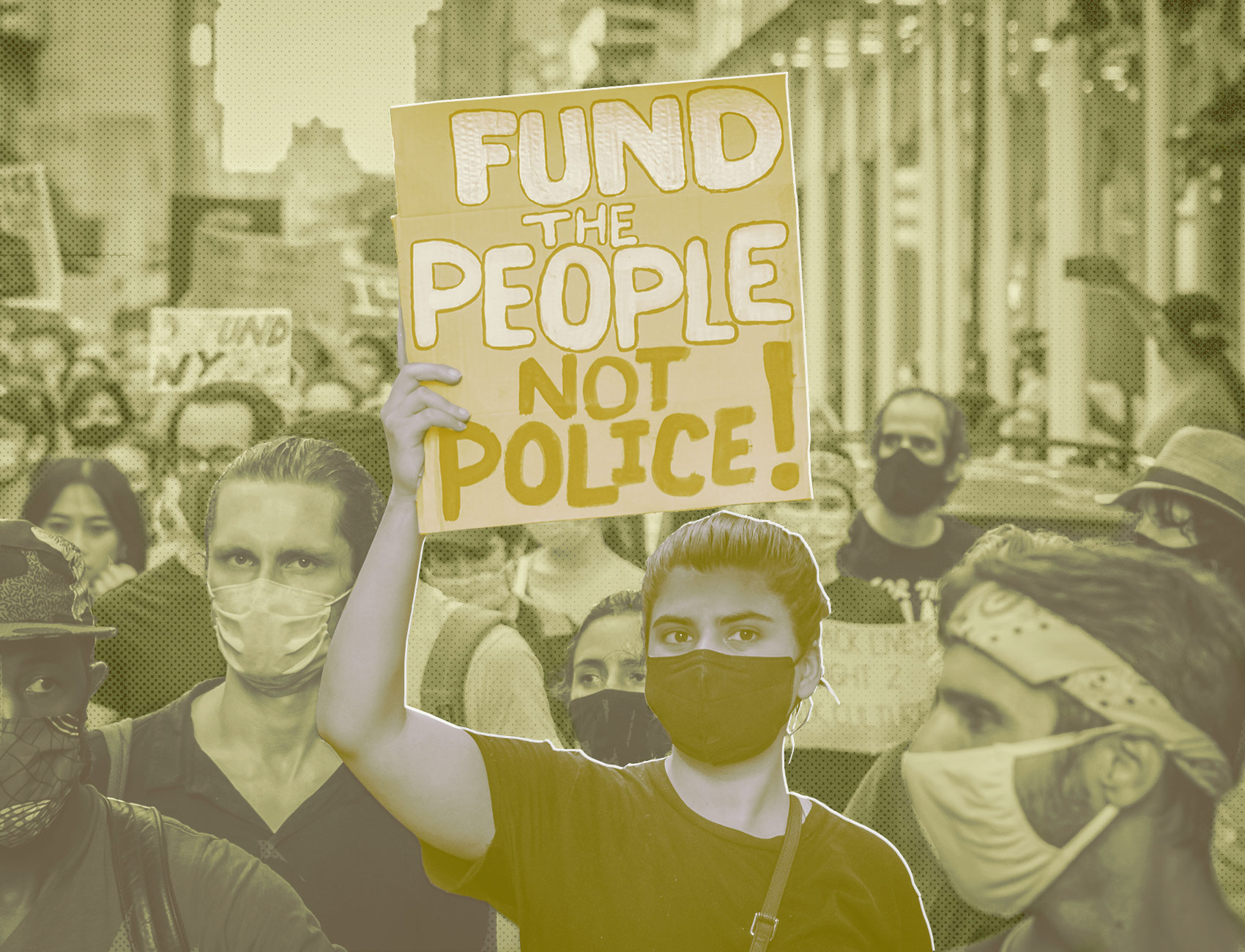After Recent Unrest, Chicago Leaders Are Pointing Fingers In All The Wrong Places
In difficult moments like this, we can’t let bad faith attacks set our community back. What our families need are resources and investment, not more police on the streets.

This piece is a commentary, part of The Appeal’s collection of opinion and analysis.
Our Chicago community has been through a lot — from Rekia Boyd to Laquan McDonald to the uprisings we’ve witnessed in recent weeks. After these difficult moments, the media and politicians point fingers and dole out blame, rather than ask the most important question: How did we get here in the first place? Why is it that the city with the most police per capita suffers from so much pain and violence?
The story we’ve been told is that police and prisons make us safer, but this has never been true — not in Chicago, not anywhere in the country. Safety looks like a roof over your head and food on your table. It looks like caring teachers, mental health counselors, and recreation centers. Yet, at every turn, city leaders have chosen to funnel more resources into the Chicago Police Department, instead of addressing what’s really hurting our communities.
Many of the people arrested during the uprisings in recent days have no criminal record or history of violence. They’ve been pushed to their limits by racialized policing and police violence, by the lack of direct federal relief, and by a deadly virus that has disproportionately affected Black and brown families.
Cynical opportunists want to leave Cook County District Attorney Kim Foxx holding the bag. But it’s because of Foxx’s policies that the situation isn’t worse. By holding police accountable, overturning wrongful convictions, and clearing tens of thousands of marijuana convictions, she’s helped to restore trust between the community and the District Attorney’s office.
It’s clear that Foxx’s policies are working. Incarceration rates fell by 19 percent between 2017 and 2018, while cases of violent harm dropped by 8 percent. In 2019, before the pandemic, Chicago recorded the lowest number of shootings since 2014. Foxx’s bond reforms have also been successful, reducing the number of people held pretrial in Cook County Jail and helping to close the race gap in pretrial decisions. In spite of these numbers, proponents of the Chicago Police Department, including Mayor Lori Lightfoot, are pushing for a return to the failed “lock-’em-up” policies of the past.
Reversing decades of bad criminal justice policy was never going to be easy, and there is admittedly still much work to do. Mass incarceration has taken a devastating toll on my constituents and their families. People have lost parents, children, and loved ones to the carceral system. They’ve seen their communities torn apart.
Those of us who serve in the State Legislature have a responsibility to right the wrongs of the past, and work to dismantle systemic racism in the justice system. One concrete step we can take to accomplish this is ending money bonds in Illinois. Money bonds create a two-tiered justice system. While wealthy people can pay their bond and go free, people without means are left to waste away behind bars, even though they are legally innocent. It has created a debtor’s prison that punishes our poorest and most vulnerable, while doing nothing to make us safer.
The danger of money bonds has been apparent throughout the COVID-19 outbreak, with 1 in 6 COVID-19 Chicago cases connecting back to Cook County Jail. The need to end mass jailing is more urgent than ever as we work to slow and contain the virus.
In difficult moments like this, we can’t let bad faith attacks set our community back. What our families need are resources and investment, not more police on the streets. As a city, we’ve been here before, but unlike the response to uprisings of the past, today we can choose a different course.
Robert Peters is a Democratic member of the Illinois Senate for the 13th district.
